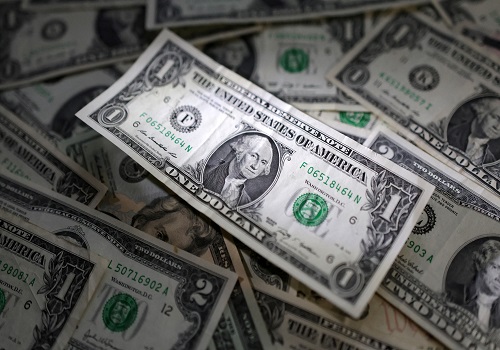Dollar edges up in range-bound holiday markets

Follow us Now on Telegram ! Get daily 10 - 12 important updates on Business, Finance and Investment. Join our Telegram Channel
The dollar edged higher across the board on Friday in a quiet session following the U.S. Thanksgiving holiday but remained near multi-month lows as the prospect of the Federal Reserve moderating the pace of its policy tightening weighed on the U.S. currency.
"Today has all the indicators of another session dominated by USD consolidation in lieu of any major cross-asset drivers," said Simon Harvey, senior FX analyst at Monex Europe.
"Liquidity is quite limited, nothing major being released in other markets," Harvey said.
The euro slipped 0.1% against the dollar to $1.04015 but remained not far from the four-month high of $1.0481 touched in the mid-November. For the week, the common currency was up 0.7% against the greenback.
The dollar has rallied against every major currency this year, boosted by the Federal Reserve's supersized interest rate hikes as it battles inflation. But recent cooler-than-expected U.S. consumer price data has spurred investor bets that the dollar's rally may be done.
Minutes from the Federal Reserve's November meeting, released on Wednesday, showed that most policymakers at the central bank agreed it would soon be appropriate to slow the pace of interest rate hikes.
On Nov. 30, Federal Reserve Chair Jerome Powell will speak at the Hutchins Center on Fiscal and Monetary Policy on the outlook for the economy and the changing labor market.
"Powell's first comments since the Nov 2nd meeting will be crucial. If he doesn't push back on the recent loosening in financial conditions, the dollar's near-term support may slip," Harvey said.
The dollar was 0.4% higher against the Japanese yen at 139.14 yen after data showed core consumer prices in Japan's capital, a leading indicator of nationwide trends, rising at their fastest annual pace in 40 years in November, signalling broadening inflationary pressure.
Sterling was 0.21% lower at $1.2084, as investors remained concerned about the economic outlook for the United Kingdom.
China's central bank said on Friday it would cut the amount of cash that banks must hold as reserves for the second time this year, releasing about 500 billion yuan ($69.8 billion) in long-term liquidity to bolster the slowing economy.
The offshore Chinese yuan fell about 0.3% to 7.2071 to the dollar, headed for a second weekly loss, as COVID-19 worries continued to weigh.
Cryptocurrencies, which have come under intense selling following the high-profile collapse of crypto exchange FTX, remained choppy, with bitcoin down 0.6% at $16,485.












 320-x-100_uti_gold.jpg" alt="Advertisement">
320-x-100_uti_gold.jpg" alt="Advertisement">












